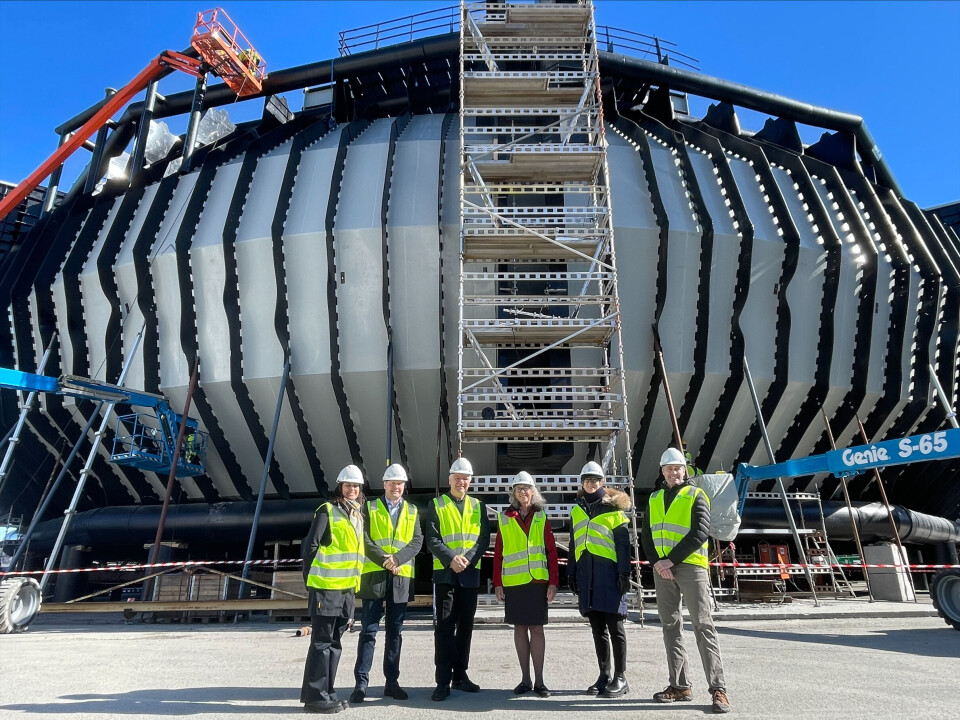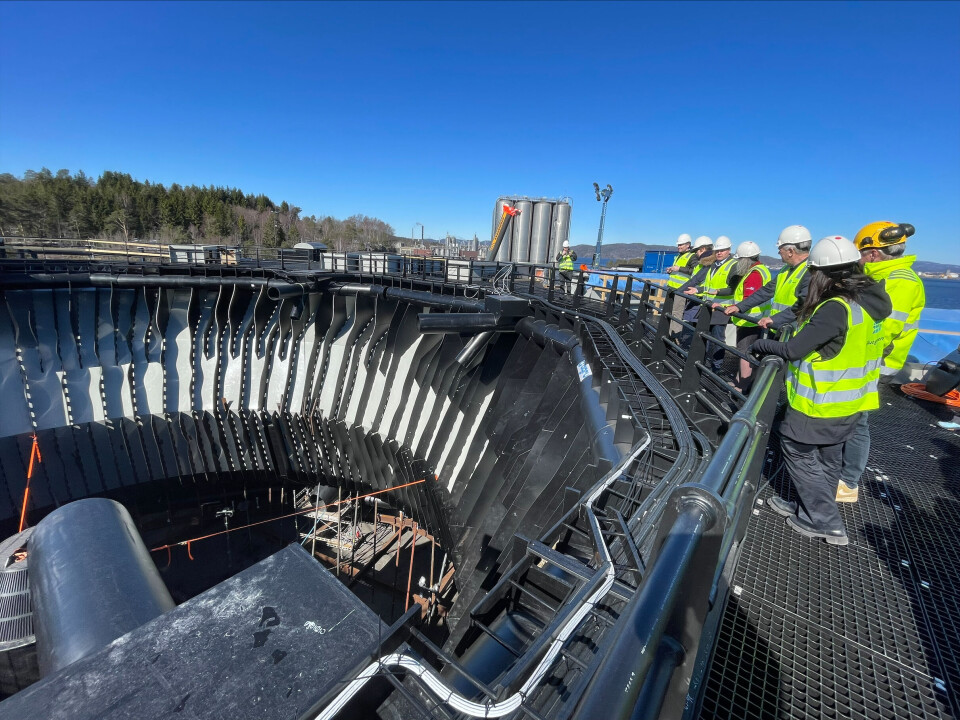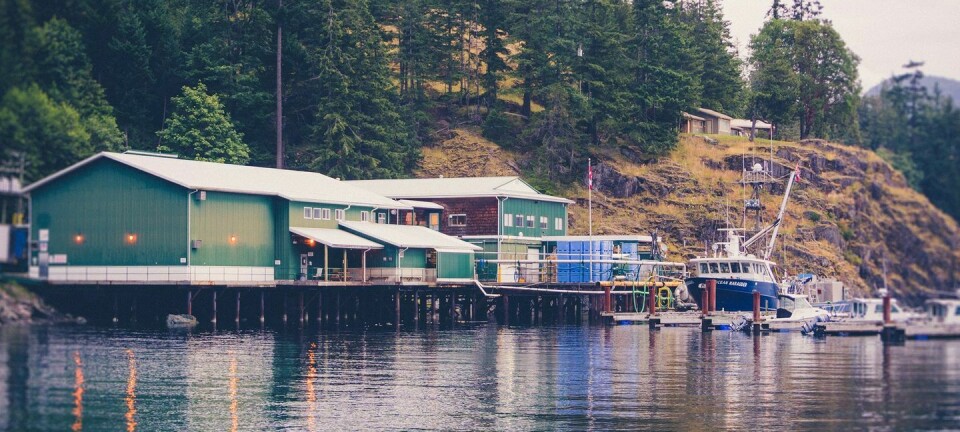
Canadian fisheries minister shows appetite for Donut
‘It seems like an opportunity for British Columbia’ says BC transition leader Murray
Canadian fisheries minister Joyce Murray has been given a tour of the Marine Donut floating closed containment fish farm during a visit to Norway.
Murray is leading the federal government’s plans to “transition” salmon farming in British Columbia from open net pens to other methods that involve less or no interaction with wild fish.
She has also refused to restore licences for 15 salmon farms in the Discovery Island in BC that were shut down by her predecessor Bernadette Jordan, despite 10 studies by government scientists concluding that the farms posed no more than a minimal risk to wild Pacific salmon stocks.
Very interested
The minister visited Marine Donut creator Bluegreen’s site in Bamble, a municipality 170 km southwest of Oslo, after meeting the company’s managing director, Nils-Johan Tufte, at an event in Canada three weeks ago where the salmon sector showed MPs some of the advances being made in farming technology.
“They said that the next time they were going to Norway, they should come by to say hello, and now they've come here,” Tufte told Fish Farming Expert’s Norwegian sister site, Kyst.no.
“I think it was very successful. They were very interested, asked many questions and had good input. They gave many signals that this is something they also want in Canada.”

Alternative solution
In a press release from Bamble municipality, Murray said: “I was delighted to be able to come here and see the development of the Bluegreen concept. Salmon is an important industry in British Columbia on the west coast of Canada and we are in a transition away from cage-based farming. I am very happy to see the development of this alternative solution which has potential.”
Bluegreen’s new construction is planned to contribute to more environmentally friendly fish farming, avoid salmon lice, avoid escapes, collect sludge and at the same time deliver quality fish.
The Donut, which started in the spring of 2022 and is being built in collaboration with the world’s second biggest salmon farmer, SalMar, is now nearing completion at Bamble.
1,100 tonnes of biomass
The polyethylene fish farm weighs just under 500 tonnes and has a volume of 22,000 m³ and a permit for 1,100 tonnes of biomass.
“My impression is that these are businesspeople who really understand how important it is to protect the environment, and that it is possible to do this, and to engage in salmon farming. I am very happy to see that,” said Murray.
“It certainly seems like an opportunity primarily for British Columbia, but of course also for the east coast it could be interesting.”
Bluegreen Canada
Last year Bluegreen established a subsidiary, Bluegreen Canada Inc., with the aim of using its technology mitigate problems such as sea lice, extremes in water temperatures, and the spread of infectious salmon anaemia (ISA) that have challenged salmon farmers on Canada’s Atlantic coast.
Mark Lane, former executive director of the Newfoundland Aquaculture Industry Association, is a director of the new subsidiary.
“Having worked in the seafood farming industry for more than two decades, I firmly believe that Bluegreen’s Marine Donut has enormous potential to reduce biological, environmental and political pressures,” said Lane in a press release last August.
“We feel the Marine Donut can assist salmon farmers in producing more product at lesser cost by complementing existing technology and infrastructure.”























































